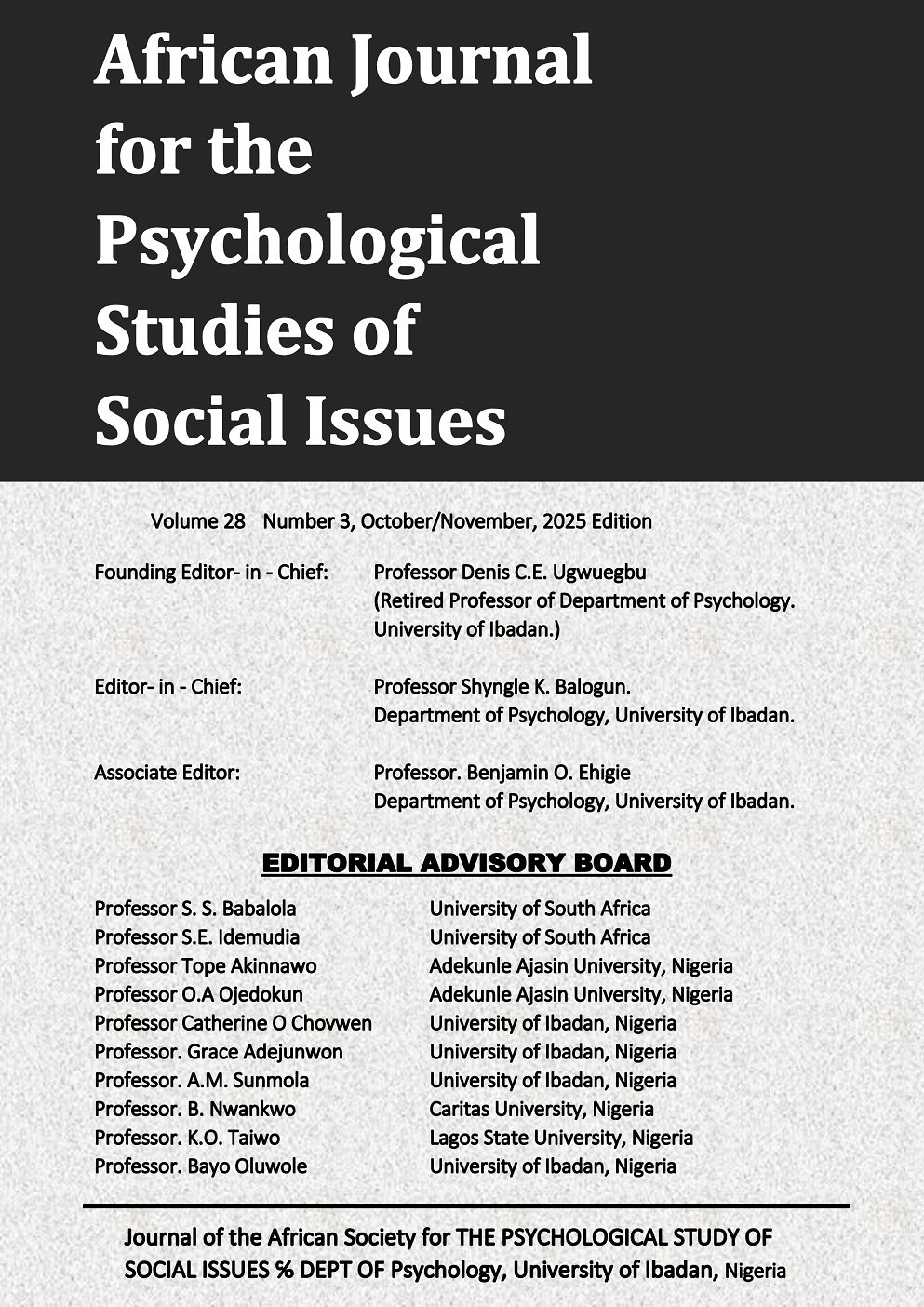IMPACT OF PERCEIVED LONELINESS ON SELF-HARM URGE AMONG UNIVERSITY UNDERGRADUATES: THE MEDIATING ROLE OF SELF-ACCEPTANCE
Abstract
The urge to harm oneself has become a crucial research topic in recent years. It has been connected to a number of detrimental issues with adolescents' and young people's physical and mental health. In light of this, this study examined the mediating function of self-acceptance as well as the predictive impact of perceived loneliness on the urge to self-harm among University Undergraduates. The research design used in the study was a cross-sectional survey. A total of 428 undergraduate students from the University of Ilorin in Kwara State 112 males and 316 females were chosen using both purposeful and convenience sampling techniques. Measures of perceived loneliness (α=.84), self-acceptance (α=.80), and urge to harm oneself (α=.96) were all answered by the participants. Two-step Hierarchical Multiple Regression Analysis was used to test the hypotheses that were developed.
The results indicated that the urge to harm oneself was significantly predicted by perceived loneliness (β =.12, t = 2.37, p <.01). The relationship between perceived loneliness and the urge to harm oneself was fully mediated by self-acceptance, according to the mediation analysis (β =.012, t =.348, p <05). Thus, the study comes to the conclusion that a strong predictor of the desire to harm oneself is perceived loneliness. The impact of perceived loneliness on university undergraduates' urge to self-harm is also found to be significantly mediated by self-acceptance. Therefore, the study suggested that in order to help control the urge to harm oneself, self-acceptance should be included in psychosocial programs.
Keywords: Self-harm urge, perceived loneliness, social interaction anxiety, self-acceptance, students.
Downloads
Downloads
Published
Issue
Section
License
Copyright (c) 2025 AFRICAN JOURNAL FOR THE PSYCHOLOGICAL STUDIES OF SOCIAL ISSUES

This work is licensed under a Creative Commons Attribution 4.0 International License.
Copyright is owned by the journal.




